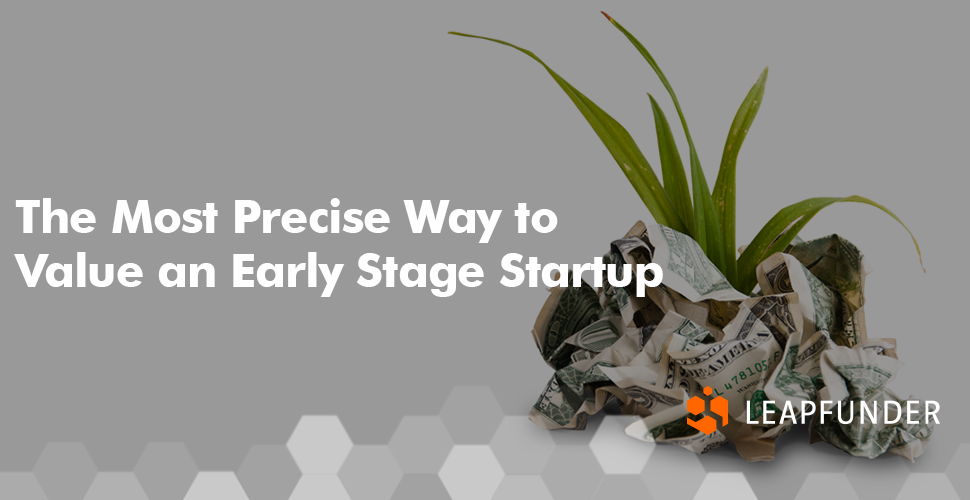You see a talented team with a great plan, a slick presentation and a functional demo. You believe in their plan, and you want to invest. But what is the company worth? There are no customers yet, only leads, there are no earnings, only costs. The company does not have any tangible assets. How do you put a price on that?
The most common way early-stage startups measure the value of their company is based on how much money they think they need. Then they decide by ‘gut feel’ how much equity they are willing to give away for that amount of investment. And so we see a startup raising 100K euros in exchange for 20% equity, implying a valuation of 0,5 million euros/dollars, not because they believe that’s what it’s worth, but because E100k is what they need and 20% is as much as they are willing to part with. This is not an economic valuation at all.
Investing in early-stage startups always come with great risk, but the risk is even greater when your valuation is based on nothing.You can also try to build a spreadsheet based on the startup’s financial forecast, but of course that’s all just your guesswork. If you still decide to take that road, make sure you can defend the valuation by comparing to recent valuations of the closest competitors in the target market. But there is another solution…
How to value a startup
Don’t! If you try to value an early-stage startup you will almost always get it wrong. Either it will be undervalued and the company sells too many shares, or it will be overvalued and the investor pays too much. Both ways the company runs into trouble in the next financing round. If the founders have sold a huge slice of their company in the first round they will be reluctant to dilute even more. If the company was valued too high there will be a down round which is bad for the earlier investors.
When using convertible notes, the whole valuation discussion is postponed. The startup is able to raise financing and grow. The valuation will be done in the future when the startup is more mature. Valuation will be done based on a qualifying event, usually a significant investment directly in the company. This event automatically gives a valuation. Or conversion is done based on a set date based on an independent valuation. Since the startup is now more mature there are better indicators of the valuation, such as the numbers of customers, sales, and market-share. They give you a better dataset to base the valuation on.
Postponing the valuation through the use of convertible notes also has one other major advantage. The valuation discussion is a very difficult one. As mentioned before there is the risk that you will get the valuation wrong, but what about the risk that you cannot agree on valuation and your deal fails? The more parties involved the higher the chance that the discussion does not come to a conclusion and the round simply fails. If you can avoid the valuation discussion you will likely have a higher chance of a successful financing round.


